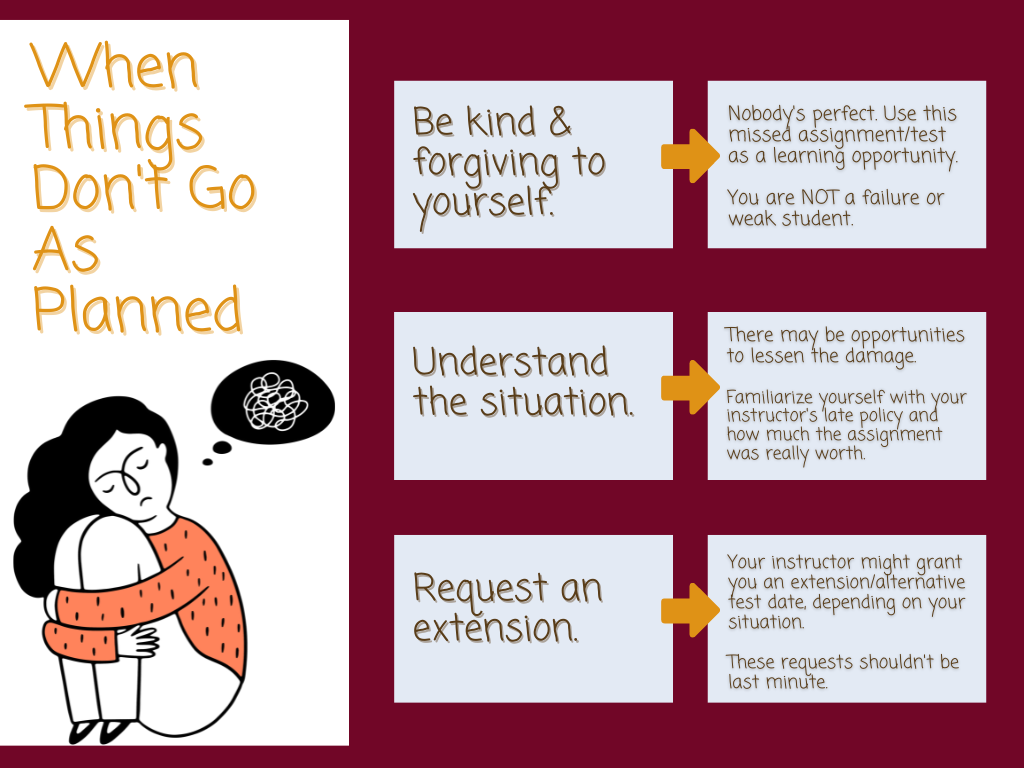Chapter 4: Learning Strategies
34
Do you ever feel like no matter what you do, whenever you try to stay on track or complete a project, you find yourself daydreaming about the weekend or deep in a YouTube black hole? Just like the other learning skills and strategies we are focusing on in this chapter, tackling procrastination is an important step on the way to success.
Procrastination (the action of delaying or postponing something) affects us all. When we have a big project or an overwhelming task to do, it’s only natural that we may put it off for a while or find excuses why other things are more important to focus on for now. When procrastination becomes a real problem is when we put off work for so long that we start to fall behind, miss deadlines and it impacts our ability to meet our own goals.
Tackling procrastination is multifaceted; it includes:
- reducing distractions
- choosing manageable short-term and long-term goals
- tapping into your motivation
- accountability and following through with your plan
- avoiding fears of failure, weakness and incompetence
Video: Tim Urban: Inside the mind of a master procrastinator | TED
Watch the video “Tim Urban: Inside the mind of a master procrastinator” [14:03] on Tim Urban’s experience with procrastination during his post secondary schooling.
Getting to Work
There’s a lot you can do and ask yourself to set yourself up for success.
1. Ask yourself: “why do I procrastinate in the first place?”
For most, procrastination is not due to laziness; many of us put off tasks because we are afraid of failure and appearing dumb. Perhaps we are struggling to understand the assignment instructions or the content for an upcoming test, so we procrastinate to avoid these feelings of confusion and incompetence. Another common reason why you may procrastinate is that you view the given task as irrelevant to your interests, goals and passions. Therefore, you don’t see a point in devoting time and energy to completing it.
2. Tap into your motivation.
Instead of telling yourself that you need to work hard in school to avoid failure, make your peers proud of you, or earn a higher grade than everyone else in your lab group, focus on your personal goals, your desire to learn new things and the excitement of exploring new opportunities. Actively identify and build on your own personal motivations rather than focusing on others’ goals and expectations.
3. Be an active and critical learner.
This includes engaging with course material, realizing when you don’t understand something and taking the necessary steps to seek clarification, genuinely understanding content rather than simply reading and memorizing it and applying what you’re learning to other classes, your personal experiences and your future career aspirations. You’re more likely to want to complete tasks that make sense to you.
When Things Don’t Go as Planned
Even if you consistently apply the right tips and tricks to avoid and combat procrastination, situations will inevitably arise in which you won’t get around to starting an assignment or studying for a test in advance. While it’s obviously ideal to avoid cramming and last-minute work, we’re all human and sometimes schoolwork gets put on the back burner if you’re dealing with other areas of life, such as poor health, family demands and earning an income. It’s important to know how to properly and constructively handle these situations.

Activity: Practice Asking for an Extension
Asking for an extension can be intimidating, but your professor will often be accommodating, especially if you explain your situation and don’t ask at the last minute. Check out this article from Grammarly on tips and reasons to ask for an extension.
When you are ready, practice asking for an extension below by drafting a hypothetical extension request email to a professor. Be sure to include specific details about your reasoning, as outlined on the website. You can always go back to Chapter 3 and read the tips for how to send a professional email to an instructor as well.
When you’re done, you can download your request in case you need to use it later.
Complete the activity using the text box to enter your response.

